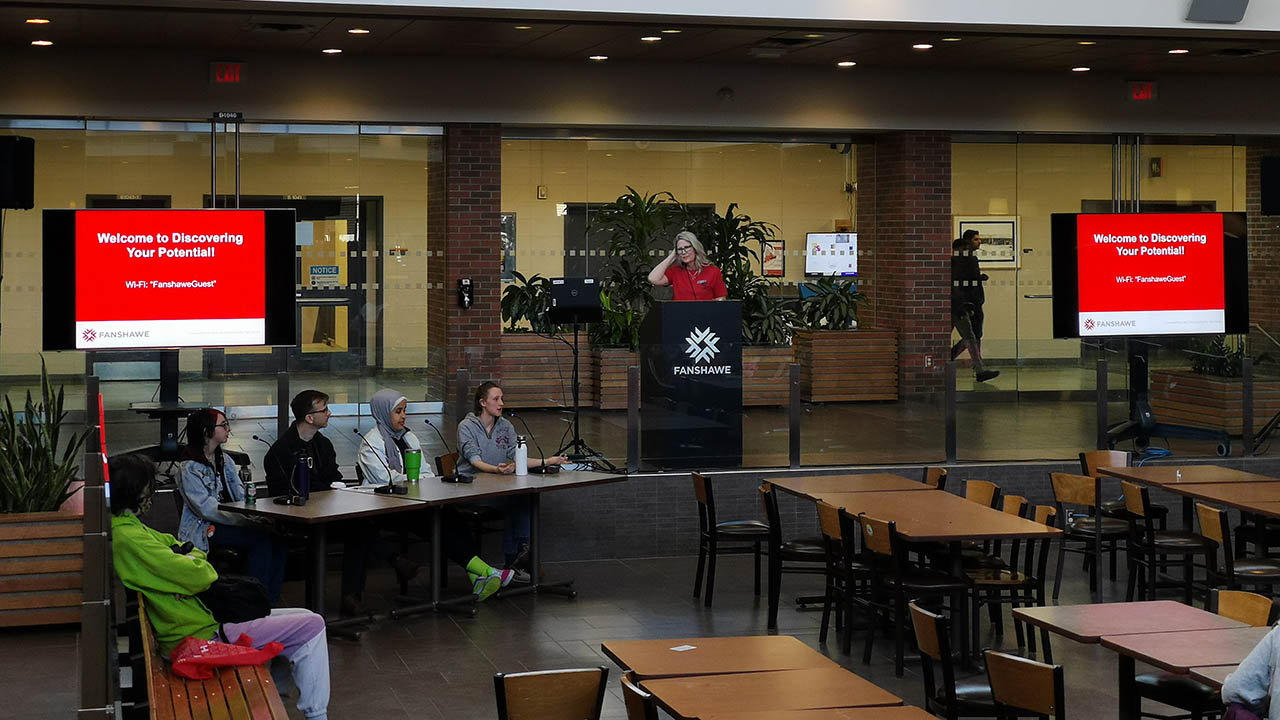Fanshawe is making accessibility an easy-reach tool for students
 CREDIT: MAURICIO PRADO
CREDIT: MAURICIO PRADOThe Fanshawe accessibility panel included experiences from actual students and personal support workers.
On April 27, Fanshawe hosted an accessibility panel for all new students to show them all the available resources.
The panel included experiences from actual students and personal support workers.
“College can be a lonely place, but we are here to tell you, you are not alone,” said personal support worker Karima Hassan.
According to Statistics Canada, 22.3 per cent of the Canadian population has a disability, and 31.9 per cent are people ranging between 15 to 24 years old. These disabilities include physical, psychosocial and psychological.
Hassan said that thanks to the accessibility tools at Fanshawe, she found a reason to attend college and feel good about it.
“It helped me figure out how to prioritize what I wanted out of my academic life in school,” said Hassan. “With those services, you do not feel you are sinking that much. In the middle of doing your projects, assignments and living every day, it is good to find people and services willing to help you.”
She said seeing a counsellor has helped her step out, regroup, refocus, and return to earth.
“It is like you are not drowning in your problems alone anymore,” said Hassan
“If it were not for Accessibility, I probably would not have as much of a strategy and an organized way of approaching school,” said social service student Benjamin Walters.
Walters also credits his successful career to Accessibility at Fanshawe.
“Accessibility made this entire student experience successful,” said Walters.
According to Ontario Universities Accessibility Campus, barriers to learning are removed through accessibility. Accessibility services in schools, universities and colleges recognize that students can learn in various ways. It also helps the students to stay mentally healthy and motivated throughout their careers.
“I feel more resourceful now than when I first started college. I had to practice much of that resourcefulness and learn how to reach out to people for help,” said music industry arts (MIA) student Merret Clements.
She said that to recognize the need for help, people must reflect and organize their thoughts.
“The lessons I have learned through Associability and counselling are going to be invaluable for the rest of my life,” said Clements. “I learned how to research properly and ask for help when things are getting out of control in my head.”
Walter said people need to take advantage of these essential and valuable services.
“They genuinely are trying to help you,” said Walters. “It is up to the students to advocate for themselves and take advantage of those services.”
Walters stated that everybody, at some point in their lives, needs accessibility services. He said that the impact the accessibility services at Fanshawe have had on him is one of the main takeaways of his career as a student.

















